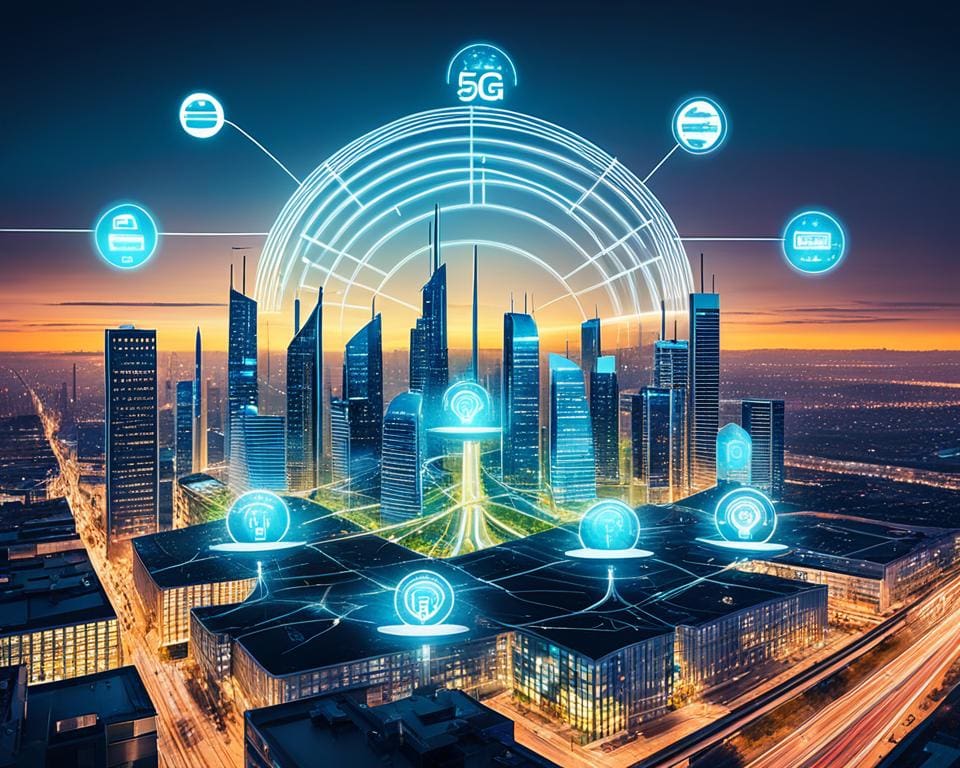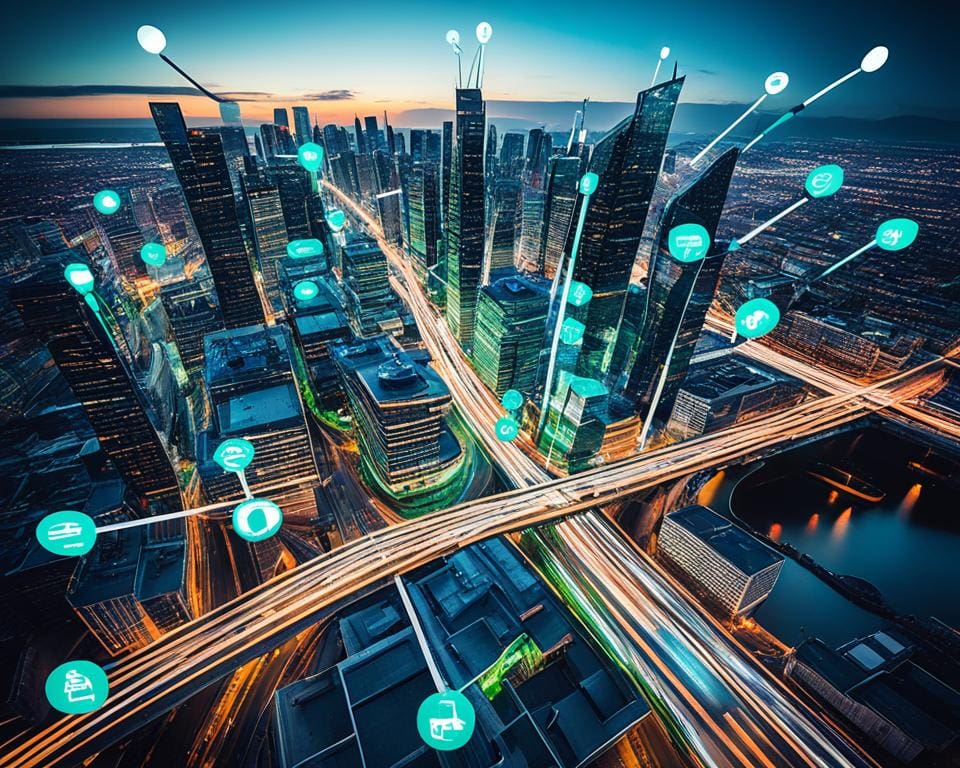Our cities are changing, and 5G technology is at the heart of this evolution. More than half the world’s population now lives in cities, notes the World Economic Forum. This fact drives the need for smarter urban solutions. Thanks to 5G, our urban areas will see vast improvements. This includes a 100x boost in network capacity and efficiency over 4G. Plus, it offers speeds that leave traditional networks far behind.
5G will drastically cut down the time it takes for devices to communicate with each other. This cut by 10x enables instant interactions between numerous connected devices. Such speed is key for real-time data sharing, crucial in managing cities more effectively. This leap forward means cities can enjoy lower crime rates. They can also benefit from quicker responses to emergencies. Thus, cities will not just be smarter, but safer and more streamlined too.
The fusion of IoT with 5G marks the start of a new chapter for urban areas. This blend is making our cities more sustainable and vibrant. We are moving towards a better future, with 5G leading the way.
The Role of 5G Technology in Smart City Development
Urban areas are growing fast, making smart cities a key solution for tomorrow. At the heart of this change is 5G technology. It sets the stage for the Internet of Things to come alive. This tech allows cities to gather, analyze, and use large amounts of data to improve urban life.
Understanding the Foundations of Smart Cities
Smart cities use digital tech to make life better for people. Today, over 1000 cities each have more than 500,000 residents. Almost 55 percent of people now live in urban areas. This increases the need for efficient services. 5G technology is crucial in connecting devices seamlessly. This lets smart cities tackle problems by using data to improve services, safety, and resource management.
How 5G Enhancements Overcome 4G Limitations
4G had its limits, like slow speeds and not enough connections for many devices. 5G fixes these issues. It’s way faster than 4G and supports a million devices per square kilometer. This speed and capacity mean data is processed in real time. It also speeds up responses in critical situations. 5G isn’t just about better communication. It paves the way for advancements in transit and healthcare. It builds a strong foundation that grows with urban needs, making cities more productive and sustainable.

How 5G Will Transform Smart Cities and IoT Integration
5G technology is set to transform urban areas with better IoT integration. It relies on low latency and high-density connections. The result? Faster communications that will change how cities work, making devices and systems interact in real time.
The Impact of Low Latency and High Density
5G’s ultra-low latency, with delays as short as 1 millisecond, is a big deal for smart cities. It allows for quick information exchanges, important for city management. This tech can connect a million devices per square kilometer, letting cities manage everything from traffic to public services.
Real-Time Data Processing for Urban Efficiency
As cities add 5G to their infrastructure, real-time data processing becomes key. City planners can better manage public transport, energy, and emergencies with ongoing data. This use of 5G helps cities become more sustainable and resilient, benefiting residents and governments alike.
Digital Solutions for the Future of Urban Infrastructure
Cities are transforming by using 5G technology and the Internet of Things (IoT). They improve our urban life with smart traffic management. This system uses IoT to get real-time traffic info. It then adjusts traffic signals to make flow better and cut down jams. Singapore is a great example of this in action. It’s creating green, smoother commutes. The market for IoT in smart cities is expected to jump to $931.5 billion by 2032 from $148.6 billion in 2022.
Utilizing IoT for Smart Traffic and Energy Management
IoT is also changing energy management. It lets cities watch and adjust their energy use. This means less waste and more green living. Smart systems make cities more efficient. They help them meet the needs of more people while keeping life sustainable.
Enhancing Public Safety and Emergency Response
5G tech makes public safety and emergency responses better. It allows for instant communication between emergency teams. Cities use smart cameras and analytics to improve security. This tech helps them act fast during incidents. It’s making our cities safer and more robust. Smart solutions are moving us towards a more connected, brighter urban future.









